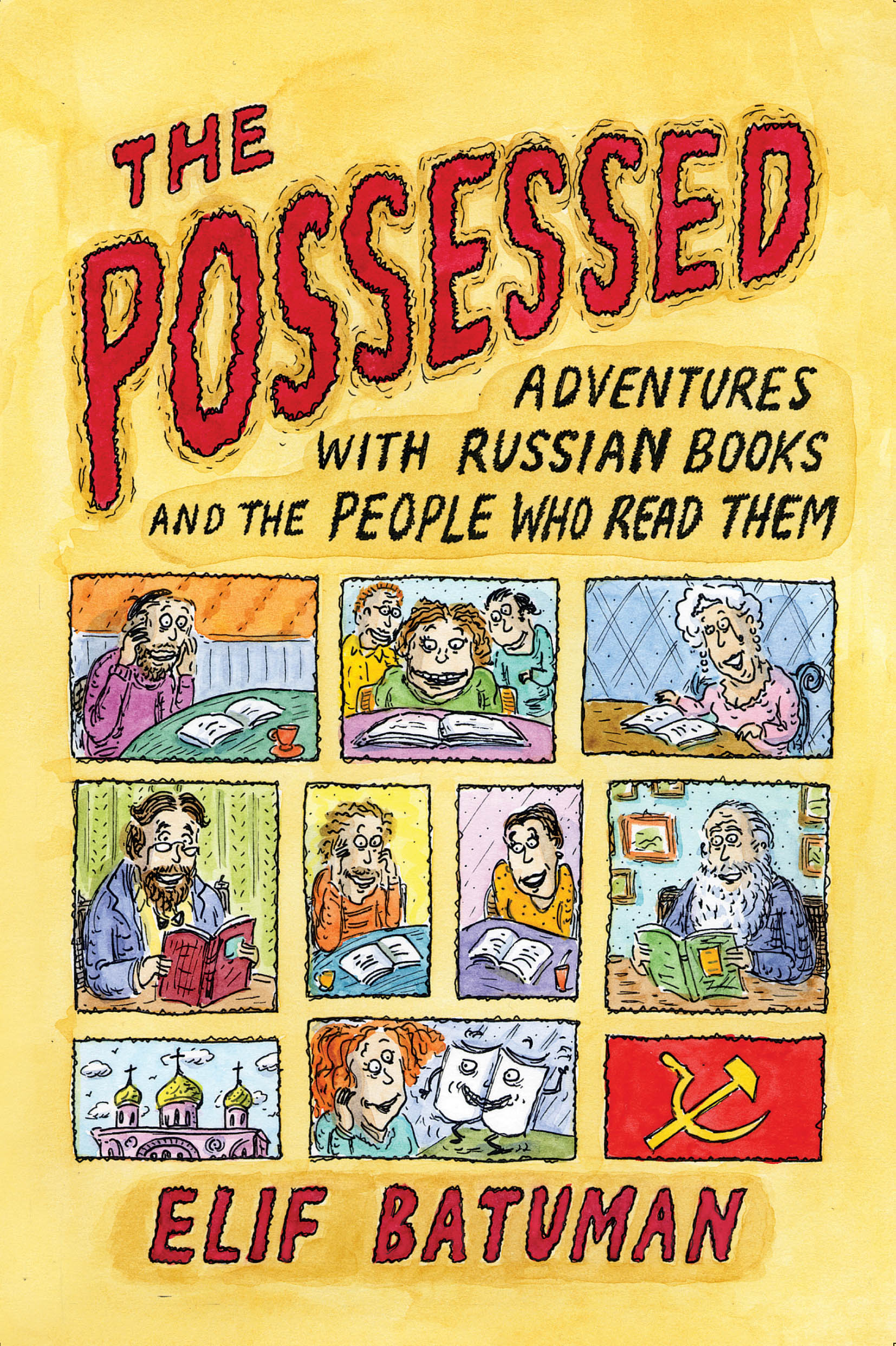 Each day leading up to the March 10 announcement of the 2010 NBCC award winners, Critical Mass highlights one of the thirty-one finalists (to read other entries in the series, click here). Today, NBCC board member Craig Morgan Teicher discusses criticism finalist Elif Batuman's The Possessed: Adventures with Russian Books and the People Who Read Them (Farrar, Straus and Giroux).
Each day leading up to the March 10 announcement of the 2010 NBCC award winners, Critical Mass highlights one of the thirty-one finalists (to read other entries in the series, click here). Today, NBCC board member Craig Morgan Teicher discusses criticism finalist Elif Batuman's The Possessed: Adventures with Russian Books and the People Who Read Them (Farrar, Straus and Giroux).
The young Elif Batuman burst onto the literary scene a couple of years ago with a series of essays and articles in the New Yorker and N+1 about the great books and authors of Russian literature and her own experiences as a wayward PhD student. Much to readers’ surprise, those pieces were not only hilarious but deeply insightful about the continuing resonance of 19th- and early 20th-century Russian books in today’s world. Who knew that literary scholarship could be so fun? Who knew that academic conferences—from whose floors Batuman often reports—could be such decadent hotbeds?
Obviously, Elif Batuman knew: with the above-mentioned articles as her kernel, Batuman wrote The Possessed, a hybrid of hip literary criticism, cultural critique of the academic world, biography, and memoir, in which a flailing fiction writer (Batuman) off-roads into a scholar’s life, only to find herself with one foot planted firmly back in the world of creative writing as one of the most unusual literary critics to emerge in years. Her book is tough to classify, which is one of the best things about it—by not confining herself to one cookie cutter notion of genre, Batuman covers a heck of a lot of ground, and gets away with some stirring literary criticism.
Of course, finally, this is a book about books, how to read them and why, what they mean and why they matter, how they make a difference to the world in which they were written, and to ours. “Much of Red Cavalry,” Batuman writes about Issac Babel’s classic work of short fiction, “is about the price Babel paid for his literary material” in a Russia that was becoming increasingly hostile to free expression. Raveling together an obscure Tolstoy play called The Living Corpse and Tolstoy’s own complex relationship to spirituality, Batuman at one point asks, “what was Tolstoy’s God, if not a living corpse?” And she can write in fluent academese like the best of them, if that’s what one is looking for in a book like this: “As suggested by the emphasis on conversion narrative, mimetic desire is a fundamentally Christian theory,” she notes.
Meanwhile, Batuman offers dispatches on the ridiculousness of the kinds of conferences that are the bread and butter of an academic’s life: “I was contemplating [Amy Mandelker’s well-known study, Framing Anna Karenina] on the second morning of talks, when I counted a total of four cats actually inside the conference room.” Taken together, this mix of wit, insight, candor, and courage will send readers running to their bookshelves—or bookstores—in search of the great Russian authors; after reading Batuman, one almost can’t help loving, and understanding, these books more deeply than one could have hoped. This is where criticism should be heading. Who knew that one person’s love of literature could be so contagious?
Elif Batuman's home page, which includes links to reviews of The Possessed, can be accessed here. To read an excerpt (via newyorktimes.com), click here.


